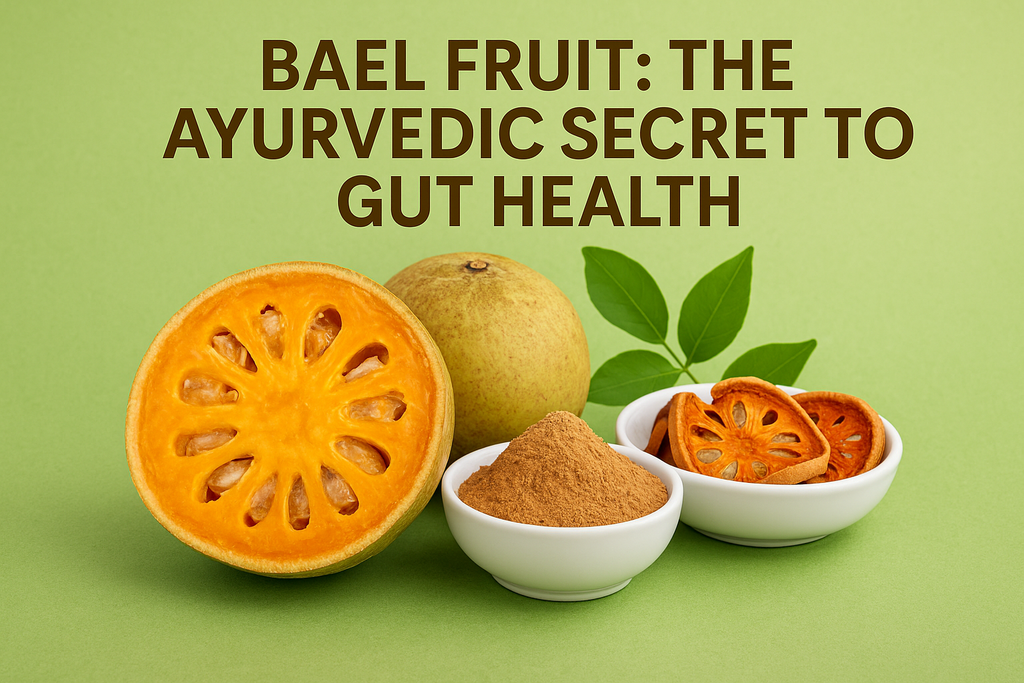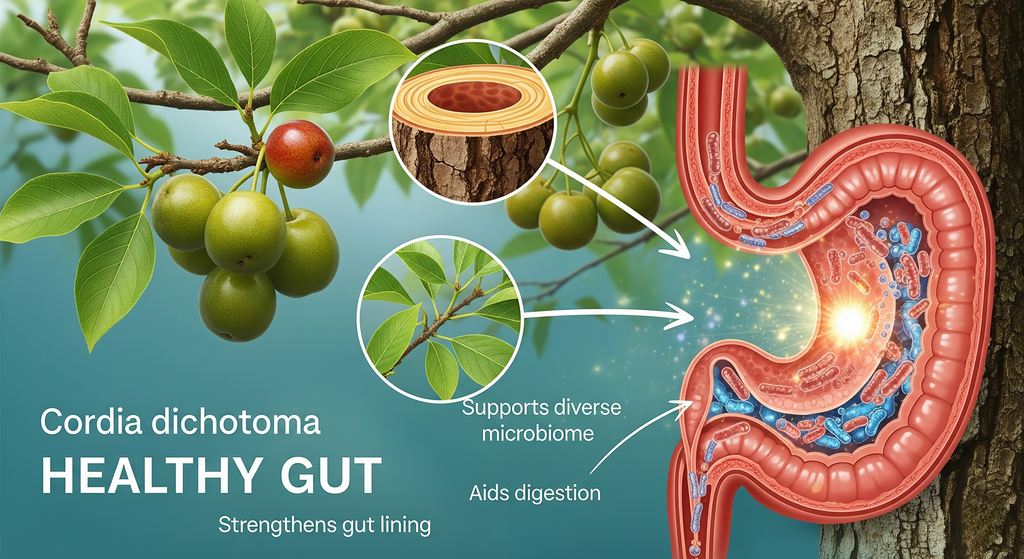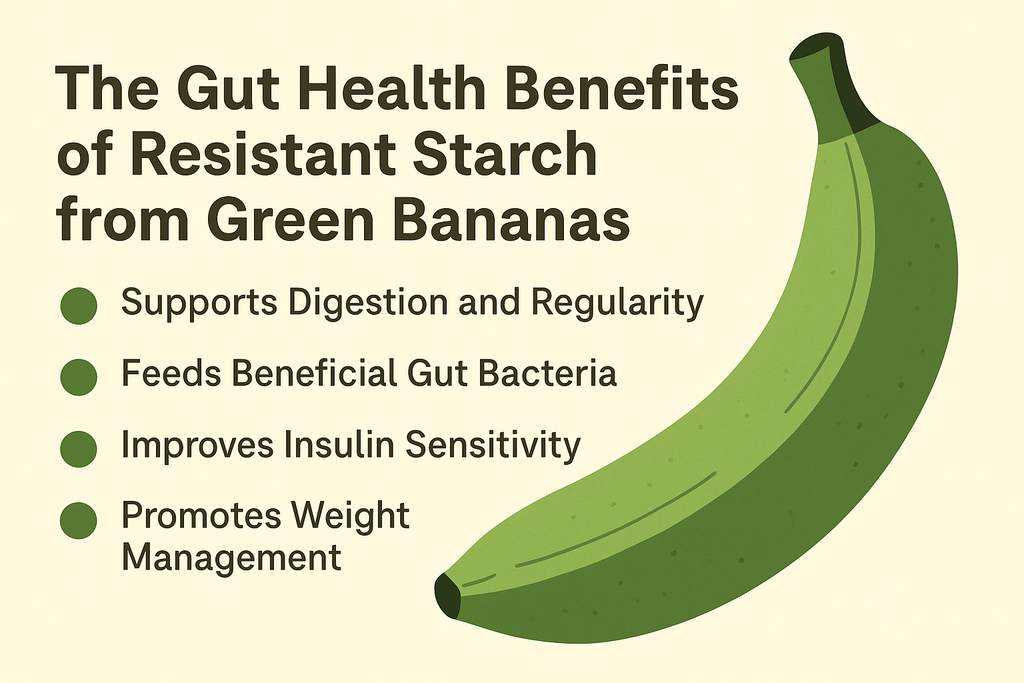News — gut health
Bael Fruit Benefits for Gut Health | Ancient Ayurvedic Digestive Remedy
Aegle marmelos anti-inflammatory fruit Ayurvedic herbs for digestion Ayurvedic remedy Bael and Gymnema Bael fruit Bael fruit benefits Bael fruit for IBS Bael powder Bael supplement constipation relief digestion support gut health Gymnema Sylvestre herbal anti-diarrheal herbal gut support natural digestion aid natural gut health remedies natural microbiome balance tridoshic fruit
For thousands of years, Bael fruit (Aegle marmelos) has been revered in Ayurvedic medicine as a powerful digestive tonic. This hard-shelled fruit, native to India and Southeast Asia, has carved out a special place in traditional wellness for its ability to soothe and restore balance to the gut. Whether consumed as a juice, dried powder, or supplement, Bael fruit has earned its reputation as a natural aid for everything from indigestion to chronic gut inflammation.
Modern science is finally catching up with ancient wisdom, validating Bael fruit’s remarkable properties in supporting gut health. Rich in fiber, tannins, and bioactive compounds like marmelosin, this humble fruit supports healthy bowel movements, combats harmful bacteria, and strengthens the intestinal lining. In this article, we’ll explore the multifaceted benefits of Bael fruit, its traditional roots, and how it compares to modern solutions like Gymnema Sylvestre Organic Extract for holistic digestive support.
Cordia Dichotoma Benefits: Your Guide to a Healthy Gut
anti-inflammatory antioxidants butyrate Cordia dichotoma digestive wellness gastrointestinal health glue berry gut health gut microbiome herbal medicine IBS Indian cherry leaky gut mucilaginous properties natural remedies phytonutrients polysaccharides traditional medicine Tributyrin
Cordia dichotoma, commonly known as a glue berry or Indian cherry, has been a staple in traditional medicine systems for centuries. This unassuming tree, with its small, sticky fruits, is packed with beneficial compounds that contribute to overall well-being. From its anti-inflammatory properties to its rich antioxidant content, the various parts of the plant offer a holistic approach to health, making it a subject of increasing interest in modern scientific research.
Delve into the profound benefits of Cordia dichotoma, with a special focus on its positive impact on gut health. We will explore how its unique chemical composition can help soothe digestive issues, promote a balanced microbiome, and support a robust intestinal lining. By understanding the science behind this traditional remedy, you can discover a natural way to enhance your digestive wellness and improve your quality of life.
The Gut Health Benefits of Resistant Starch from Green Bananas
banana for gut banana powder banana resistant starch blood sugar support butyrate colon health digestion aid digestive health fiber supplement green bananas gut healing gut health IBS relief insulin sensitivity microbiome natural prebiotic prebiotics resistant starch SCFA production weight loss
Gut health is quickly becoming one of the most important pillars of overall wellness, and one unsung hero in this space is resistant starch—especially the kind found in green bananas. Unlike the yellow, ripe versions most people are familiar with, green bananas are packed with a special type of fiber that bypasses digestion in the small intestine and feeds the good bacteria in your colon.
Resistant starch is gaining momentum as a key prebiotic, and green bananas are among the richest natural sources. Whether you're dealing with digestive discomfort, looking to enhance your microbiome, or simply seeking better metabolic health, adding resistant starch to your diet could be a game-changer. This article explores how green bananas can transform your gut health and why this type of starch deserves a spotlight in your daily nutrition.
The Role of Bitter Foods in Digestive Enzyme Production
appetite regulation arugula bile secretion bitter foods bitter taste receptors bitters and digestion culinary uses of bitters dandelion greens detoxification digestive bitters digestive enzyme production gentian root gut health herbal bitters kale microbiome support natural digestion support nutrient absorption pancreatic enzymes stomach acid stimulation
From leafy greens like arugula and dandelion to herbal favorites such as gentian root, bitter foods have long held a place in traditional diets and healing practices. Yet in today’s world of sweet and salty flavors, bitterness is often overlooked—even avoided. What many don’t realize is that bitter compounds do far more than challenge the palate: they play a critical role in stimulating digestive function.
One of the most fascinating aspects of bitter foods is their influence on digestive enzyme production. By activating bitter taste receptors not just on the tongue but also throughout the gastrointestinal tract, these foods can signal the body to release saliva, gastric juices, bile, and pancreatic enzymes—all essential for breaking down food efficiently. This article explores how bitter foods enhance digestive enzyme production, why that matters for gut health, and how to reintroduce them into a modern diet that has largely sidelined this powerful flavor profile.
Beyond the Superfood: Seaweed-Derived Fucoidan’s Natural Anti-Inflammatory Power
antioxidant-rich foods brown seaweed benefits cardiovascular health chronic inflammation cytokine modulation fucoidan gut health immune balance immune support inflammation relief joint health kombu marine nutrition mozuku natural anti-inflammatory natural healing ocean superfood seaweed extract seaweed supplement sustainable supplements wakame
For centuries, seaweed has been a dietary staple in coastal communities, revered not just for its unique flavor but also for its rich nutrient profile. But as modern science peels back the layers of oceanic nutrition, one particular compound is emerging as a standout—fucoidan. This naturally occurring polysaccharide, found in brown seaweeds such as wakame, mozuku, and kombu, is making waves in the wellness world for its potential to soothe inflammation at the root cause.
Chronic inflammation is the quiet troublemaker behind many of today’s most persistent health challenges, from joint pain and cardiovascular disease to autoimmune disorders. While synthetic anti-inflammatory drugs can be effective, they often come with a laundry list of side effects. Fucoidan, on the other hand, offers a natural, gentle approach—working in harmony with the body’s systems to calm the immune response, support tissue repair, and promote long-term vitality. The deeper you dive into its research, the more this ocean treasure starts to look like a genuine game-changer.





